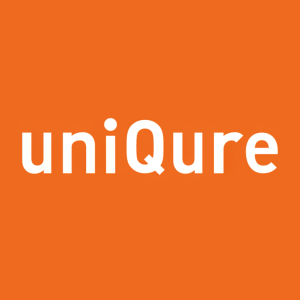uniQure Announces FDA Removes Clinical Hold on Hemophilia B Gene Therapy Program
uniQure N.V. (NASDAQ: QURE) has announced that the FDA has lifted the clinical hold on its hemophilia B gene therapy program, following a thorough review regarding a patient who developed hepatocellular carcinoma (HCC) during the HOPE-B trial. Investigations showed no evidence that the therapy contributed to the patient's condition. uniQure is set to release 52-week data from the HOPE-B trial soon. The company has conducted extensive monitoring of patients, with no further HCC cases reported across over 100 participants.
- FDA has lifted clinical hold on hemophilia B gene therapy program.
- No evidence linking AMT-061 to the HCC case in the HOPE-B trial.
- 52-week data from HOPE-B trial is expected to be announced soon.
- Extensive patient monitoring has shown no further HCC cases in clinical trials.
- None.
Insights
Analyzing...
LEXINGTON, Mass. and AMSTERDAM, The Netherlands, April 26, 2021 (GLOBE NEWSWIRE) -- uniQure N.V. (NASDAQ: QURE), a leading gene therapy company advancing transformative therapies for patients with severe medical needs, announced today that the U.S. Food and Drug Administration (FDA) has removed the clinical hold on the Company’s hemophilia B gene therapy program after determining the Company satisfactorily addressed all issues identified by the FDA related to a single patient diagnosed with hepatocellular carcinoma (HCC) in the HOPE-B pivotal trial.
“Patient safety is our top priority, and we are grateful to our advisors and the FDA for their help in resolving this clinical hold,” stated Ricardo Dolmetsch, Ph.D., president of research and development at uniQure. “Our comprehensive investigation showed that AMT-061 (etranacogene dezaparvovec) is very unlikely to have contributed to the HCC in our patient. We look forward to announcing top-line 52-week data from the HOPE-B pivotal trial later this quarter.”
uniQure previously announced on December 21, 2020, that the FDA placed the hemophilia B program on clinical hold following the diagnosis of HCC in one patient in the HOPE-B trial. The patient had multiple risk factors associated with HCC, including a twenty-five-year history of hepatitis C (HCV), history of hepatitis B (HBV). Chronic infections with hepatitis B and C have been associated with approximately
Following a surgical resection of both tumor and adjacent liver tissue, multiple analyses conducted by an independent laboratory and reviewed by leading external experts in the field show that AAV vector integration in the patient’s tissue sample was extremely rare and accounted for
All patients in uniQure’s hemophilia B gene therapy program, including the 54 patients in HOPE-B, have had abdominal ultrasounds performed one year after dosing, and each will continue to be monitored by their care teams. Patients will continue to receive abdominal ultrasounds every six-months. No other cases of HCC have been reported in uniQure clinical trials conducted in more than 100 patients in hemophilia B and other indications, with some patients dosed more than 10 years ago.
About Etranacogene Dezaparvovec
Etranacogene dezaparvovec consists of an AAV5 viral vector carrying a gene cassette with the patent-protected Padua variant of Factor IX (FIX-Padua). uniQure holds multiple issued patents in the United States and Canada broadly covering methods of treating bleeding disorders, including hemophilia B, using AAV gene therapy with the FIX-Padua variant. Etranacogene dezaparvovec has been granted Breakthrough Therapy Designation by the United States Food and Drug Administration and access to Priority Medicine (PRIME) regulatory initiative by the European Medicines Agency. In June 2020, the Company and CSL Behring entered into a licensing agreement providing CSL Behring with exclusive global rights to etranacogene dezaparvovec. This licensing agreement has cleared antitrust regulatory review in Australia and the United Kingdom and is subject to ongoing review in the United States.
About uniQure
uniQure is delivering on the promise of gene therapy – single treatments with potentially curative results. We are leveraging our modular and validated technology platform to rapidly advance a pipeline of proprietary gene therapies to treat patients with hemophilia B, Huntington's disease, Fabry disease, spinocerebellar ataxia Type 3 and other diseases. www.uniQure.com
uniQure Forward-Looking Statements
This press release contains forward-looking statements. All statements other than statements of historical fact are forward-looking statements, which are often indicated by terms such as "anticipate," "believe," "could," "estimate," "expect," "goal," "intend," "look forward to", "may," "plan," "potential," "predict," "project," "should," "will," "would" and similar expressions. Forward-looking statements are based on management's beliefs and assumptions and on information available to management only as of the date of this press release. These forward-looking statements include, but are not limited to, whether the Company will present top line 52-week data in the second quarter of 2021, or at all. Our actual results could differ materially from those anticipated in these forward-looking statements for many reasons, including, without limitation, the risk that the Company has not and may not be able to definitively determine whether etranacogene dezaparvovec caused the reported case of hepatocellular carcinoma (HCC); the risk that additional cases of HCC or other serious adverse events will be discovered or reported in patients treated with etranacogene dezaparvovec over time; as well as the risks, uncertainties and other factors described under the heading "Risk Factors" in uniQure’s Quarterly Report on Form 10-K filed on March 1, 2021. Given these risks, uncertainties and other factors, you should not place undue reliance on these forward-looking statements, and we assume no obligation to update these forward-looking statements, even if new information becomes available in the future.
uniQure Contacts:
| FOR INVESTORS: | FOR MEDIA: | |
| Maria E. Cantor | Chiara Russo | Tom Malone |
| Direct: 339-970-7536 | Direct: 617-306-9137 | Direct: 339-970-7558 |
| Mobile: 617-680-9452 | Mobile: 617-306-9137 | Mobile:339-223-8541 |
| m.cantor@uniQure.com | c.russo@uniQure.com | t.malone@uniQure.com |
___________________________
1 El-Serag HB. Epidemiology of viral hepatitis and hepatocellular carcinoma. Gastroenterology. 2012 May;142(6):1264-1273.e1. doi: 10.1053/j.gastro.2011.12.061. PMID: 22537432; PMCID: PMC3338949.







